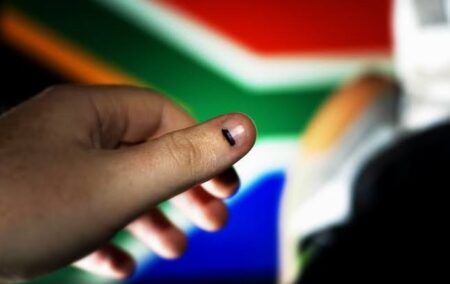Weeks before the May 2019 election, a little-known organisation, the New Nation Movement (NNM), brought a case in the Western Cape High Court in support of an argument for changing the electoral system, and possibly profoundly changing South African politics.
The case was dismissed, but the idea itself remains one that South Africa would do well to revisit.
The NNM brought the case to effect a change in the electoral system to allow independent candidates to stand in provincial and national elections. The respondents in the matter were the President of the Republic of South Africa, the Department of Home Affairs, the Independent Electoral Commission, and the Speaker of the National Assembly.
Alan Nelson, acting for the NNM, argued that the current electoral system was never intended to remain unchanged in perpetuity, and that, as it currently stood, it allowed only members of a political party to stand for Parliament or a provincial legislature. In response, Judge Siraj Desai said that individuals could simply form a political party to stand in a national election.
Does the NNM have a point and, if so, how could it be implemented?
The organisation appears to have an ally in Chief Justice Mogoeng Mogoeng, who said in June 2018 that independent candidates should be allowed to stand in national and provincial elections.
Currently, independent candidates can only stand at municipal level. The reason for this is that it is only at municipal level that voters elect representatives from geographically defined constituencies, or wards. In municipalities, half of all representatives for a particular town or city are elected from wards, and the other half from party lists, to ensure proportionality. At provincial and national level, however, all representatives are elected from party lists, which also means that, effectively, all candidates standing have to belong to a political party.
There is no reason why South Africa could not implement a system at national and provincial level similar to that used at municipal level to allow for independents to stand for election. The only constitutional requirement in our electoral system is that it ensures proportionality, and having a system where half of representatives are elected from constituencies, with the other half elected from party lists to ensure proportionality would ensure this. Such a system has worked well in post-war Germany, and is used in countries as diverse as New Zealand and Lesotho.
One may ask why people who want to stand as independent candidates do not simply follow Judge Desai’s advice and form a political party.
While registering a political party is very cheap and fairly easy (it costs R500 and you need 500 signatures of registered voters who support its founding), running in a national election is prohibitively expensive for most people. It costs R200 000 to compete for Parliament and R45 000 for every provincial legislature. These are prohibitive costs for most individuals. But there is no reason why costs for an individual who stands in one Parliamentary constituency could not be more reasonable.
Independent candidates who stand in municipal elections in South Africa pay only R1 000 to run in a particular ward. These costs could be set slightly higher for prospective independent parliamentary or provincial legislature candidates as a means of weeding out frivolous contenders but without raising a prohibitive barrier to participation.
In the United Kingdom, for example, candidates are required to pay a deposit of £500 (about R9 000), which they lose if they do not secure a certain proportion of the vote. A deposit of roughly that amount seems fair to implement in South Africa.
Some may argue that independents will make little impact, but it is clear that independents are increasingly becoming a realistic option for South Africans who are fed up with our current political parties. Consider that in the 2016 municipal elections, independent candidates in eThekwini (Durban) won nearly eight percent of the total votes cast for ward candidates (more than any other single party except for the African National Congress and the Democratic Alliance). This secured independents four of the 110 ward seats.
Although independents didn’t perform as well in other cities, the combined ward vote for independents – if they sat as a united entity – would make them the third or fourth biggest political bloc in many municipalities.
Political independents also have a proud tradition in many countries. Independents can often bring a local issue to national attention, allowing communities which feel that they have been ignored by far-away political elites to have their voice heard.
A notable example is that of Briton Richard Taylor. He stood as an independent candidate in the constituency of Wyre Forest, campaigning against budget and other cuts at a major local hospital in the constituency. Mr Taylor won the seat in a landslide in the 2001 general election (securing nearly 60% of the vote), holding it until 2010. In this way, local communities can ensure that their voice is heard at national level – something which doesn’t happen as much as it should in South Africa.
South Africa needs to urgently reform its electoral system. As it stands, our representatives are answerable more to party bosses than to ordinary voters. Making adjustments to our electoral system to allow for voters to directly elect at least some of our representatives from constituencies (whether as independents or as representatives of political parties) will go a long way to making sure our democracy works for all South Africans.
Giving ordinary voters the power to directly elect representatives to Parliament and the nine provincial legislatures, whether independent or not, can only deepen South African democracy.
If you like what you have just read, become a Friend of the IRR if you aren’t already one by SMSing your name to 32823 or clicking here. Each SMS costs R1.’ Terms & Conditions Apply.

